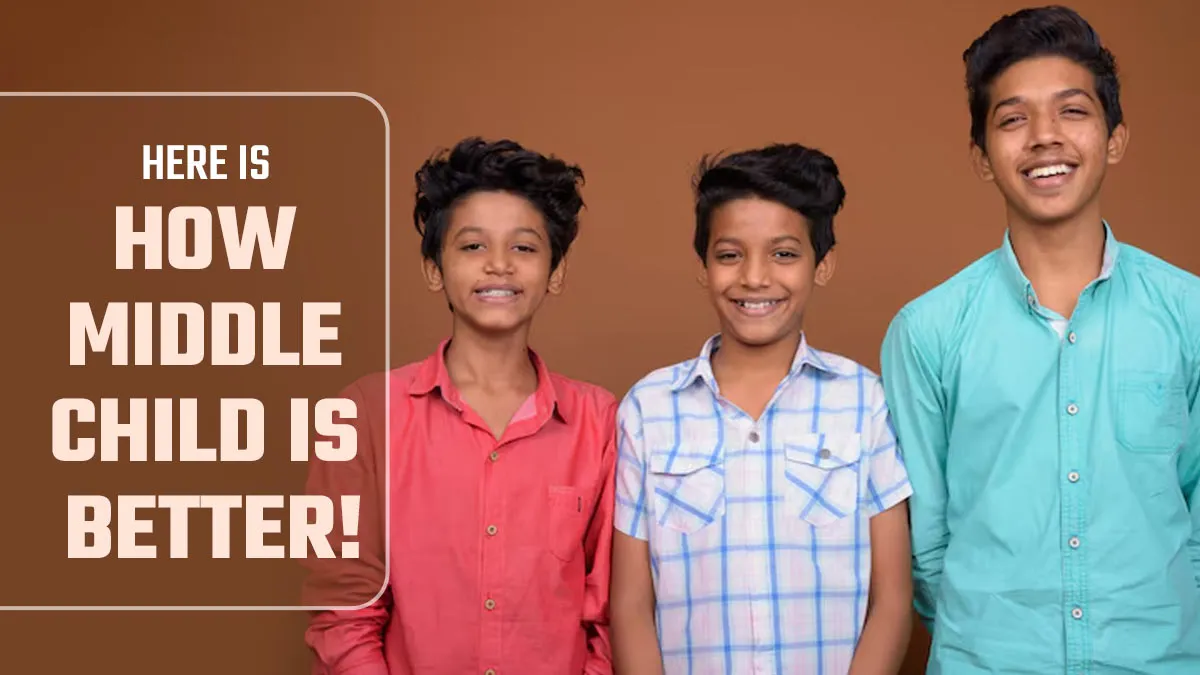
In families, birth order plays an important role in shaping personalities. Firstborns often take on leadership roles, while younger siblings enjoy being the "baby." Middle children, however, usually find themselves in a more unclear position. They are often seen as peacemakers or overlooked, but recent research shows they might be more important than we think.
Table of Content:-
A new study reveals that middle children may have unique personality traits that set them apart from their siblings. They tend to be more honest, humble, and agreeable. This research highlights the valuable qualities middle children bring to family life and challenges the stereotypes surrounding their role in the family.
Study On Middle Child Being More Honest, Humble, and Agreeable
Examining the effects of birth order on personality, a study conducted by psychologists Michael Ashton and Kibeom Lee, revealed that middle children score significantly higher in honesty, humility, and agreeableness. It assessed the six key personality traits, which are mentioned below.
- Honesty-Humility: Reflects a person's tendency to be fair and sincere.
- Emotionality: Indicates sensitivity and emotional awareness.
- Extraversion: Measures sociability and energy levels.
- Agreeableness: Assesses kindness and cooperativeness.
- Conscientiousness: Evaluates organization and dependability.
- Openness to Experience: Reflects creativity and willingness to try new things.
In the above-mentioned key traits, it was observed that middle children consistently outperformed their siblings in the first two categories. The findings suggested that middle children may develop stronger social skills due to their unique position within the family, often acting as negotiators or peacemakers. It also challenged the traditional stereotypes about birth order and emphasised the positive qualities that middle children can bring to family life.
Birth order significantly influences personality traits, with different roles assigned to siblings. Older siblings are often seen as responsible and proactive, reflecting the idea of ‘elder daughter syndrome.’ Younger siblings are usually viewed as relaxed and sometimes spoiled. In contrast, middle children often feel overlooked, a phenomenon known as ‘middle child syndrome.’
What Is Middle Child Syndrome?
-1737978075091.jpg)
According to another study published on WebMD, "middle child syndrome" is an idea that if you are neither the oldest nor the youngest sibling, you may get less attention from your parents and feel "caught in the middle." However, Canadian researchers Michael Ashton from Brock University and Kibeom Lee from the University of Calgary believe this can be a positive thing. They suggest that being a middle child can help develop unique strengths and qualities that set them apart from their siblings.
ALSO READ: Are Fast Walkers More Stressed? Study Answers Do Depressed People Walk Slower
Conclusion
The study suggests that middle children may have some advantages over their older and younger siblings, which can be reassuring. However, parents should make sure to give equal attention to all their children. If parents unintentionally overlook a middle child, it can lead to feelings of neglect, which might cause stress or emotional issues later on.
Also watch this video
How we keep this article up to date:
We work with experts and keep a close eye on the latest in health and wellness. Whenever there is a new research or helpful information, we update our articles with accurate and useful advice.
Current Version
